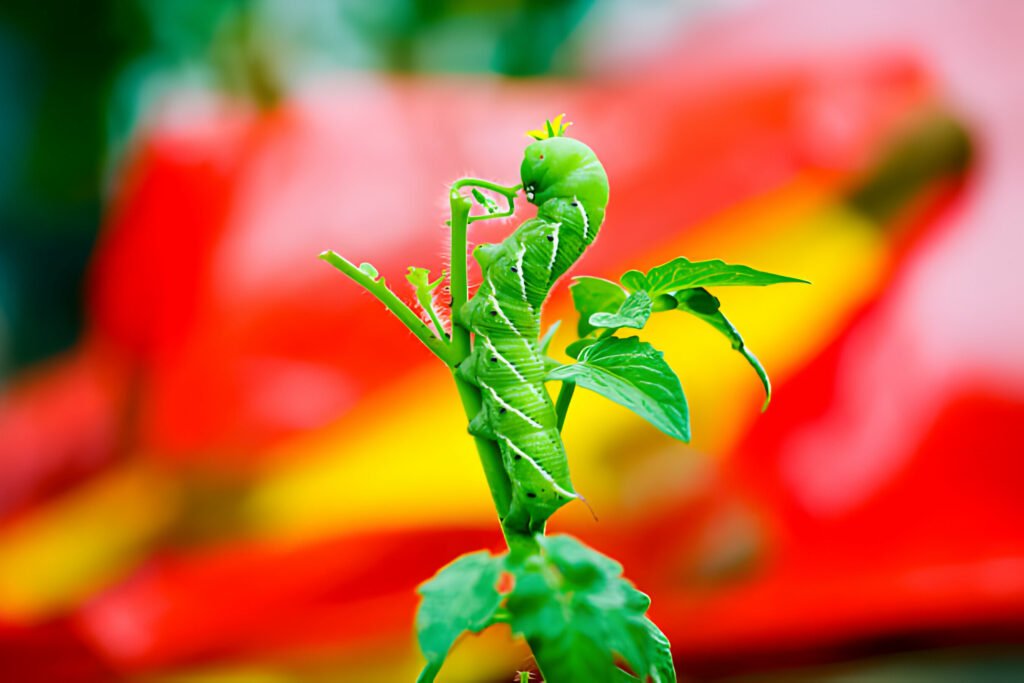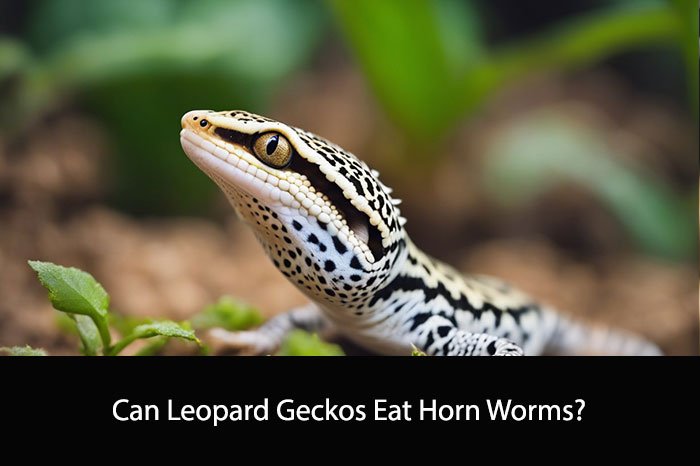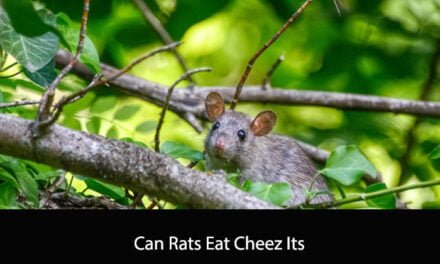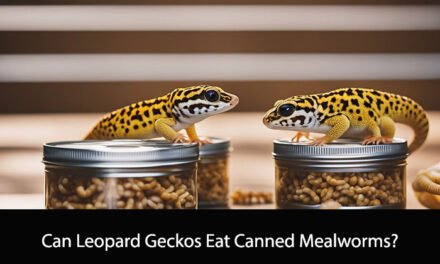Leopard geckos are one of the most popular pet reptiles due to their easy-going nature, low maintenance, and unique appearance. As with any pet, it is important to provide them with a balanced and nutritious diet. One question that often arises is whether or not leopard geckos can eat horn worms.
Horn worms are a type of caterpillar that are commonly used as a feeder insect for reptiles. They are known for their high nutritional value and are often recommended as a staple food for some species. However, when it comes to leopard geckos, there is some debate about whether or not they should be included in their diet. In this article, we will explore the topic of whether or not leopard geckos can eat horn worms and provide you with the information you need to make an informed decision about feeding your pet.
Dietary Benefits of Hornworms for Leopard Geckos

Hornworms are a popular feeder insect for leopard geckos due to their high nutritional value. They are a great source of protein, calcium, and moisture which are essential for the health and growth of leopard geckos.
One of the main benefits of feeding hornworms to leopard geckos is their high moisture content. Leopard geckos are desert animals and require a dry environment, but they still need to stay hydrated. Hornworms are approximately 85% water, making them an excellent source of hydration for your gecko.
In addition to hydration, hornworms are rich in protein which is essential for growth and development. Feeding your leopard gecko a diet that is high in protein will help them build strong muscles and maintain a healthy weight.
Hornworms are also a great source of calcium which is essential for the development of strong bones and teeth. Leopard geckos require calcium to prevent metabolic bone disease, a common condition in reptiles that can lead to weakened bones and other health problems.
Overall, feeding hornworms to your leopard gecko can provide a variety of important nutrients and help keep them healthy and happy. However, it’s important to remember that a varied diet is also important for your gecko’s health, so be sure to offer a variety of feeder insects and other foods to ensure they are getting all the nutrients they need.
Feeding Frequency and Portion Size

When it comes to feeding leopard geckos horn worms, it is important to consider both the frequency and size of the portions.
We recommend feeding adult leopard geckos once every two to three days, while juvenile leopard geckos should be fed daily. It is important not to overfeed your leopard gecko, as obesity can lead to health problems.
When it comes to portion size, it is important to feed your leopard gecko an appropriate amount based on their size. As a general rule, the portion size should be no larger than the space between your leopard gecko’s eyes.
It is also important to note that while horn worms can be a nutritious addition to your leopard gecko’s diet, they should not be the sole source of food. A varied diet including crickets, mealworms, and other insects is important for maintaining your leopard gecko’s health.
Overall, by feeding your leopard gecko horn worms in moderation and ensuring appropriate portion sizes, you can provide a healthy and varied diet for your pet.
How to Prepare Hornworms for Feeding

When it comes to feeding our leopard geckos, we want to make sure that we are providing them with the best possible nutrition. Hornworms can be a great addition to their diet, but it’s important to prepare them correctly. Here’s how we do it:
- Purchase live hornworms from a reputable supplier. Make sure they are the appropriate size for your leopard gecko’s age and size.
- Keep the hornworms in a well-ventilated container with a food source (such as hornworm chow or fresh vegetables) and water. This will ensure that they are healthy and well-fed before being fed to your gecko.
- Before feeding the hornworms to your gecko, we recommend gut-loading them with nutritious foods. This can include fruits, vegetables, and commercial gut-loading products. This will provide your gecko with even more nutrition.
- Dust the hornworms with a calcium supplement before feeding them to your gecko. This will help ensure that your gecko is getting enough calcium in their diet.
- Offer the hornworms to your gecko using feeding tongs or by placing them in a shallow dish. Make sure to supervise your gecko while they are eating to ensure that they don’t accidentally ingest any substrate or other foreign objects.
By following these steps, you can ensure that your leopard gecko is getting the best possible nutrition from their hornworms.
Potential Risks and Considerations
When feeding horn worms to leopard geckos, there are some potential risks and considerations to keep in mind. Here are some things to consider:
Nutritional Imbalance
While horn worms are high in protein and calcium, they are low in fat. If your leopard gecko is fed too many horn worms, they may become nutritionally imbalanced. It is important to ensure that your leopard gecko’s diet is diverse and includes a variety of insects to provide a balanced diet.
Size
Horn worms can grow quite large, which may be problematic for smaller leopard geckos. It is important to ensure that the size of the horn worm is appropriate for your leopard gecko’s size. Feeding a leopard gecko a horn worm that is too large can cause digestive issues and potentially even impactation.
Parasites
Like all insects, horn worms can carry parasites. It is important to ensure that any insects fed to your leopard gecko are gut-loaded and free of parasites. If you are unsure about the quality of the insects you are feeding your leopard gecko, it may be best to avoid feeding horn worms altogether.
Choking Hazard
Horn worms are relatively soft-bodied insects, but they still pose a potential choking hazard. It is important to ensure that the size of the horn worm is appropriate for your leopard gecko’s size and that the insect is properly chewed before being swallowed.
Overall, while horn worms can be a nutritious addition to a leopard gecko’s diet, it is important to consider the potential risks and ensure that they are fed in moderation and in appropriate sizes.
Alternatives to Hornworms
If you’re looking for alternative food options for your leopard gecko, there are a few options to consider. Here are some options that you may want to try:
Crickets
Crickets are a great source of protein and are a staple in many leopard gecko diets. They are easy to find in most pet stores and can be purchased in bulk. Be sure to gut-load your crickets with nutritious food before feeding them to your gecko.
Dubia Roaches
Dubia roaches are another great source of protein for leopard geckos. They are low in fat and high in protein, making them an ideal food for your pet. They are also easy to digest and are less likely to cause impaction than other insects.
Mealworms
Mealworms are a common food item for leopard geckos, but they should be fed in moderation. They are high in fat and can cause obesity if fed too often. Be sure to gut-load your mealworms with nutritious food before feeding them to your gecko.
Waxworms
Waxworms are a high-fat food item that should be fed sparingly. They are a great treat for your gecko, but should not be fed as a staple food item. Be sure to gut-load your waxworms with nutritious food before feeding them to your gecko.
Overall, there are many alternative food options for your leopard gecko if you’re looking to mix up their diet. Be sure to offer a variety of foods to ensure that your gecko is getting all of the nutrients they need to stay healthy.
Understanding Leopard Gecko Nutrition

As responsible pet owners, it is essential to understand the nutritional requirements of our leopard geckos. Providing a balanced diet is crucial for their health and well-being. Leopard geckos are insectivores, meaning they primarily feed on insects.
When it comes to feeding leopard geckos, variety is key. A diet solely based on one type of insect can lead to nutritional deficiencies. It is recommended to offer a variety of insects such as crickets, mealworms, waxworms, and super worms.
In addition to insects, leopard geckos can also consume certain fruits and vegetables. However, these should only be offered in moderation as they are not a significant source of nutrition for them.
It is important to note that leopard geckos require a calcium supplement. Calcium is necessary for their bone health and to prevent metabolic bone disease. It is recommended to dust their insects with a calcium supplement before feeding.
In conclusion, understanding leopard gecko nutrition is crucial for their health and well-being. Providing a varied diet of insects and supplementing with calcium is essential for their overall health.
Frequently Asked Questions
Are hornworms a safe food option for leopard geckos?
Yes, hornworms are a safe and nutritious food option for leopard geckos. They are high in protein and calcium, which are essential nutrients for your pet’s health. However, it is important to ensure that the hornworms are gut-loaded and dusted with calcium powder before feeding them to your leopard gecko.
What is the recommended frequency for feeding hornworms to leopard geckos?
Hornworms can be fed to leopard geckos as a treat or as part of their regular diet. We recommend feeding hornworms to your leopard gecko once or twice a week, depending on their age and size. It is important to vary their diet and not rely solely on one type of food.
How should hornworms be presented to leopard geckos during feeding?
Hornworms should be presented to your leopard gecko in a shallow dish or on a feeding tong. They should be alive and moving to stimulate your pet’s hunting instincts. It is important to monitor your leopard gecko’s feeding to ensure that they are eating and not leaving any uneaten food in their enclosure.
Is there a risk of hornworms causing harm to leopard geckos?
Hornworms are generally safe for leopard geckos to consume. However, it is important to ensure that the hornworms are the appropriate size for your pet and that they are not fed exclusively on hornworms. Overfeeding any type of food can lead to obesity and other health problems in leopard geckos.
What variety of worms are suitable for a leopard gecko’s diet?
Leopard geckos can consume a variety of worms, including mealworms, waxworms, and phoenix worms. It is important to vary their diet and not rely solely on one type of food. It is also important to ensure that the worms are gut-loaded and dusted with calcium powder before feeding them to your leopard gecko.
Aside from hornworms, what other insects can leopard geckos safely consume?
Leopard geckos can safely consume a variety of insects, including crickets, dubia roaches, and black soldier fly larvae. It is important to ensure that the insects are the appropriate size for your pet and that they are gut-loaded and dusted with calcium powder before feeding them to your leopard gecko.





